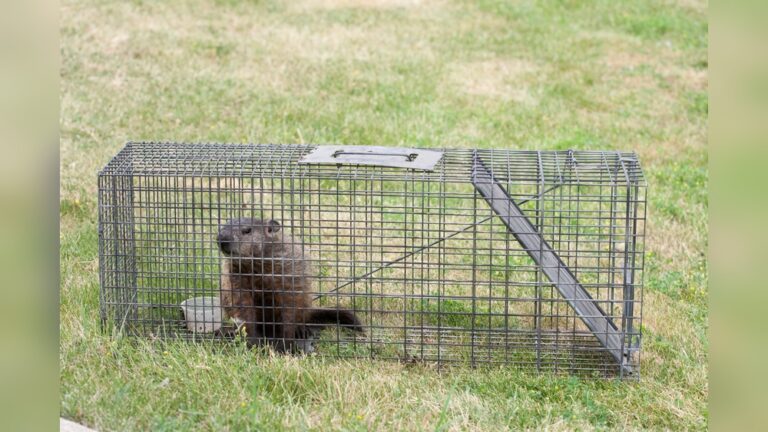Take Care Of A Guinea Pigs Cage: Essential Tips for Cleanliness
If you have a guinea pig, you know how important it is to keep its cage clean and comfortable. A well-maintained cage means your pet stays healthy and happy.
But how do you make sure you’re doing it right? You might be wondering how often to clean, what supplies to use, or how to organize the space. You’ll discover simple tips and tricks to take the best care of your guinea pig’s cage.
By the end, you’ll feel confident that your furry friend is living in the perfect home. Keep reading—you and your guinea pig deserve it!

Credit: www.wikihow.com
Choosing The Right Cage
Choosing the right cage is the first step to keeping your guinea pig happy and healthy. The cage must offer enough space and safety. It should be easy to clean and allow good air flow. A proper cage helps your pet feel comfortable and secure.
Size And Space Requirements
Guinea pigs need room to move and explore. The cage should be at least 7.5 square feet for one guinea pig. More space is better if you have two or more pets. A small cage can cause stress and health problems. Provide enough space for food bowls, toys, and hiding spots.
Materials And Durability
Choose a cage made from safe, strong materials. Metal cages with a plastic base work well. Avoid cages with sharp edges or toxic paint. The cage must resist chewing and scratching. Durable materials keep your pet safe and the cage lasting longer.
Ventilation And Accessibility
Good airflow keeps the cage fresh and dry. Look for cages with wire sides for ventilation. Make sure the cage has easy access doors. This helps with cleaning and feeding. It also lets you reach your guinea pig quickly and safely.
Daily Cleaning Routine
Keeping a guinea pig’s cage clean every day helps keep your pet healthy. A good daily routine stops bad smells and germs. It also makes your guinea pig feel happy and safe. Small daily tasks keep the cage fresh and clean without much work.
Spot Cleaning Waste
Remove any droppings or wet spots from the cage daily. Use a small scoop or paper towel for this. Clean these areas quickly to stop smells and bacteria. Changing dirty bedding in these spots helps keep the cage dry. Spot cleaning saves time and keeps the cage neat.
Refreshing Water And Food
Give your guinea pig fresh water every day. Empty the old water and clean the bottle or bowl. Check the food and remove any old or wet pieces. Add fresh hay and pellets to keep your pet healthy. Clean water and food help avoid illness and keep your guinea pig happy.
Checking For Hazards
Look for any sharp edges or broken parts in the cage. Remove anything your guinea pig could chew that is unsafe. Check toys and accessories for damage. Make sure the bedding is clean and not dusty. Spotting hazards early protects your pet from injuries and stress.
Weekly Deep Cleaning
Weekly deep cleaning is essential for a healthy guinea pig cage. It keeps your pet safe from germs and bad smells. Clean cages also make your guinea pig happier and more comfortable. Set aside time each week to do a thorough clean. Follow simple steps to keep the cage fresh and inviting.
Removing Bedding And Accessories
Start by taking out all bedding from the cage. Remove toys, food bowls, and water bottles too. Dispose of old bedding carefully. Check accessories for dirt or damage. Clean or replace items as needed. This step clears the cage and prepares it for washing.
Washing The Cage
Use warm water and mild soap to wash the cage. Scrub every corner and surface gently. Avoid harsh chemicals that may harm your guinea pig. Rinse the cage well to remove soap. Let it dry completely before adding new bedding. A clean cage is a fresh home for your pet.
Disinfecting Surfaces
Disinfecting kills bacteria and keeps germs away. Use a pet-safe disinfectant spray or solution. Apply it to all cage surfaces and accessories. Follow the instructions on the disinfectant label. Allow the cage to air dry fully after disinfecting. This step ensures a safe and healthy environment.

Credit: healthtopics.vetmed.ucdavis.edu
Choosing Safe Bedding
Choosing the right bedding for your guinea pig’s cage is very important. Bedding keeps your pet comfortable and healthy. It also helps keep the cage clean and dry. Not all bedding is safe or suitable for guinea pigs. This section helps you pick bedding that is safe, soft, and absorbent.
Types Of Bedding
Many types of bedding exist for guinea pigs. Wood shavings, paper-based bedding, and fleece liners are common choices. Wood shavings should be from safe woods like aspen. Avoid cedar and pine shavings because they release harmful oils. Paper bedding is soft and dust-free, good for sensitive noses. Fleece liners are washable and reusable, but need daily cleaning.
Avoiding Harmful Materials
Some materials can harm your guinea pig. Avoid bedding with dust or strong smells. Dust can cause breathing problems. Scented bedding can irritate your pet’s lungs. Stay away from cedar and pine shavings. These woods have oils that hurt guinea pigs. Also, avoid straw or hay as main bedding. These can be rough and hold moisture.
Comfort And Absorbency
Comfort is key for your guinea pig’s happiness. Soft bedding protects their feet and joints. Absorbent bedding keeps the cage dry and clean. Wet bedding causes bad smells and skin problems. Paper bedding and fleece liners absorb well. Change bedding often to keep it fresh. Your guinea pig will thank you with healthy behavior.
Preventing Odors And Bacteria
Keeping a guinea pig’s cage clean stops bad smells and harmful germs. A fresh cage means your pet stays healthy and happy. Small steps make a big difference in cage care. Focus on waste, odors, and moisture to prevent problems.
Proper Waste Disposal
Remove soiled bedding and droppings every day. Use a small scoop or gloves to pick up waste. Dispose of it in a sealed bag outside the home. Clean the cage bottom weekly with pet-safe cleaner. This routine limits bacteria growth and keeps odors low.
Using Odor Absorbers
Place natural odor absorbers near the cage. Baking soda works well to soak up smells. Avoid strong chemicals that can harm guinea pigs. Charcoal or cedar shavings can also reduce odors. Change these regularly to keep the air fresh.
Maintaining Dryness
Wet bedding leads to smell and bacteria problems. Change damp bedding quickly to keep the cage dry. Use absorbent materials like paper or fleece liners. Check water bottles for leaks daily. A dry cage means a healthier home for your pet.
Organizing Cage Accessories
Organizing cage accessories helps keep your guinea pig’s home clean and safe. A neat cage makes it easier to care for your pet daily. It also prevents mess and stress for both you and your guinea pig. Arranging things in order saves time and keeps your pet happy.
Food And Water Containers
Place food bowls and water bottles where your guinea pig can reach easily. Use sturdy containers that do not tip over. Clean them every day to avoid bacteria. Keep spare containers nearby for quick replacement. This helps maintain your pet’s health and comfort.
Toys And Hiding Spots
Arrange toys and hiding spots to encourage play and rest. Use safe, chewable toys to keep your guinea pig busy. Provide cozy hiding places for privacy and security. Change toys regularly to keep your pet interested. A well-organized play area supports mental and physical health.
Cleaning Tools Storage
Store cleaning tools close to the cage for easy access. Use hooks or small containers to keep brushes and cloths tidy. Keep cleaning supplies separate from pet items. This helps maintain hygiene and speeds up cage cleaning. Organized tools make care less stressful and more efficient.
Health Signs Linked To Cage Cleanliness
Keeping a guinea pig’s cage clean is vital for its health. Dirty cages can cause many health problems. These problems show up in behavior and physical signs. Watching these signs helps you act fast. It protects your pet from serious illness.
Behavioral Indicators
Guinea pigs may become less active if their cage is dirty. They might hide more than usual. Sometimes, they stop eating or drinking properly. Aggression or unusual nervousness can also appear. Changes in behavior often hint at discomfort or illness.
Physical Symptoms
Dirty cages cause skin problems like sores or redness. A bad smell can irritate their eyes and nose. You may see sneezing or coughing. Fur might look dull or patchy. Weight loss or diarrhea are serious signs to watch for.
When To Consult A Vet
Seek veterinary help if your guinea pig shows lasting signs. Continuous sneezing or breathing trouble needs a vet visit. Skin wounds that do not heal require attention. Loss of appetite for more than a day is critical. Early care can prevent severe health issues.

Credit: kavee.com
How Smart Pets Lover Can Help You with Take Care Of A Guinea Pigs Cage
Learning Through Caring: Practical Insights From Your Guinea Pig’s Cage
Taking care of a guinea pig’s cage goes beyond routine chores—it’s a wonderful opportunity to deepen your connection with your furry friend. By maintaining a daily cleaning routine and choosing safe bedding, you’re not only ensuring a fresh environment but also learning to recognize subtle health signs linked to cage cleanliness. These small observations can become your early alerts to potential health issues, fostering a proactive approach to pet care.
Organizing cage accessories thoughtfully isn’t just about tidiness; it helps you understand your guinea pig’s habits and preferences better. This insight can guide you in creating a more enriching habitat, supporting both physical and emotional well-being. As part of the Smart Pets Lover community, where every wag, purr, and chirp tells a story, embracing these practical learning moments makes pet parenting a joyful journey.
If you ever need more tailored advice, reaching out to local pet care experts or visiting trusted resources can offer personalized support—because every pet parent deserves to feel confident and connected.
Frequently Asked Questions
How Often Should I Clean My Guinea Pig’s Cage?
Clean your guinea pig’s cage at least once a week. Spot clean daily to remove soiled bedding and waste. This keeps the environment healthy and odor-free, ensuring your pet’s comfort and well-being.
What Type Of Bedding Is Best For Guinea Pig Cages?
Use soft, absorbent bedding like paper-based or fleece liners. Avoid cedar or pine shavings as they can harm your guinea pig’s respiratory system. Proper bedding keeps the cage dry and comfortable.
How Much Space Does A Guinea Pig’s Cage Need?
A cage should be at least 7. 5 square feet for one guinea pig. More space is needed for multiple guinea pigs. Adequate space promotes exercise and reduces stress.
Can I Use Disinfectants To Clean The Cage?
Use pet-safe disinfectants without strong chemicals or fumes. Diluted vinegar or mild soap works well. Rinse thoroughly to avoid harming your guinea pig.
Conclusion
Keeping a guinea pig’s cage clean helps keep your pet healthy and happy. Change bedding often and remove waste daily. Fresh water and food belong in a tidy space. A clean cage also reduces bad smells in your home. Small efforts every day make a big difference.
Your guinea pig will enjoy a safe, cozy place to live. Care for their cage like you care for them. Simple steps create a happy home for your furry friend.





